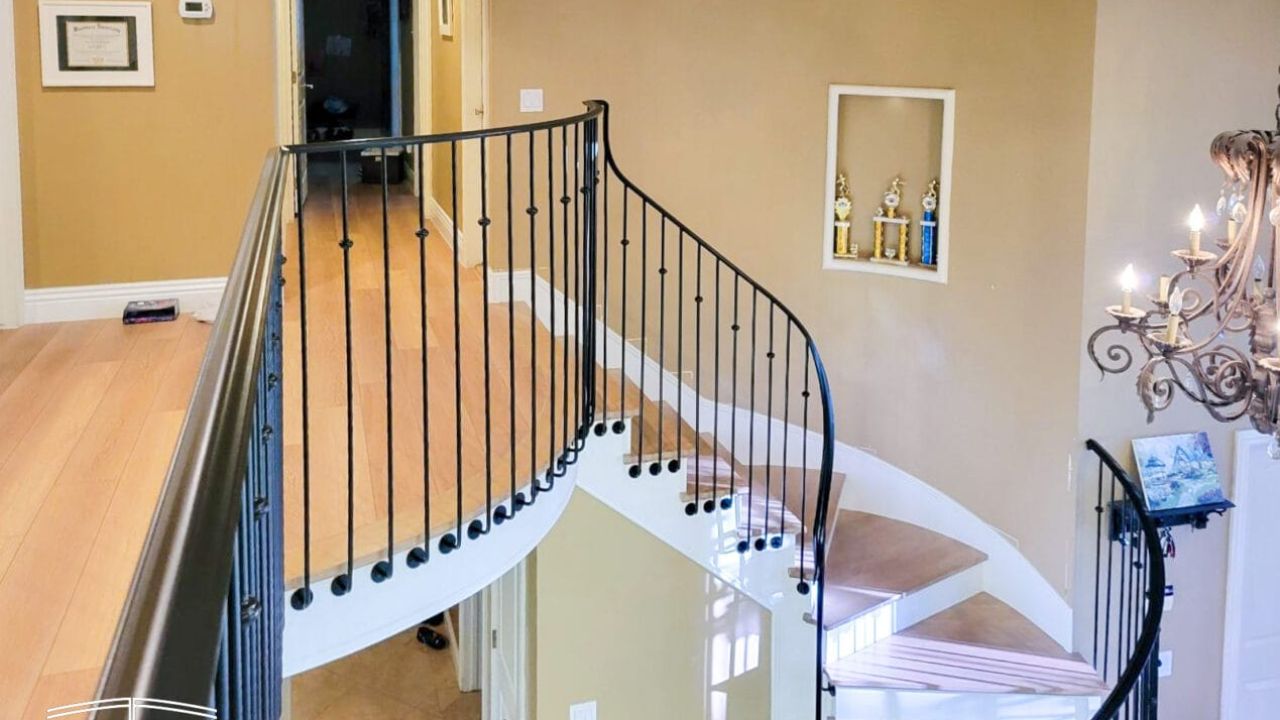
Metal railings are more than just a safety feature—they're a design element that shapes the look and feel of a space. Whether you’re upgrading a staircase, finishing off a balcony, or enhancing curb appeal, choosing between custom and prefabricated options can make all the difference. But how do you know which is best for your space?
Let’s explore both choices and help you decide which one fits your home or business project.
Prefabricated metal railings are pre-designed and pre-manufactured systems. These railings come in standard sizes, shapes, and finishes, ready for quick installation. They're often favored by contractors for their convenience and consistency.
These systems are a popular choice for commercial buildings and large projects. Prefab railings typically include all parts, like vertical posts, stair handrails, and connectors.
Custom metal railings are designed specifically for your space and vision. Whether you're working with a unique layout or want a specific look, custom railings offer full design flexibility. You can select from a wide range of materials like stainless steel, wrought iron, or powder-coated aluminum.
This option is ideal for creative projects, such as curved stairs, artistic expression, or tailored balcony railing systems. It’s also great when you need to meet unique building code requirements.
When choosing between custom and prefabricated railings, several factors come into play—design, cost, durability, and installation time.
Design Freedom: Prefabricated railings follow standardized patterns and are available in popular choices like cable railings and horizontal rail designs. While they offer modern styles and clean lines, they’re limited in customization.
Custom railings, on the other hand, offer complete flexibility—from materials and shapes to finishes and decorative touches. They can also incorporate unique elements like curved stairs, stainless steel cables, or glass panels for a bold, modern look. This level of freedom makes custom railings ideal for homeowners and designers looking to reflect personal style, match existing architectural elements, or meet specific building code and safety regulation requirements.
Installation: Prefab railings are quicker to install. Everything arrives in a kit, making them perfect for improvement projects with tight deadlines. They're also a good fit for DIY enthusiasts due to their straightforward assembly.
Custom options, however, take more time. They require detailed planning, precise measurements, and often professional installation. But the results are tailored to your space, which can improve both form and function.
Cost: The Initial cost is generally lower for prefabricated systems. The materials, labor costs, and turnaround time are all predictable. However, over time, limited durability and potential for replacement can add to the long-term price.
Custom railings may have a higher upfront price, but they’re built to last. With the right materials and expert craftsmanship, they require minimal maintenance and maintain their aesthetic appeal for years.
Material & Finish Options: Prefab railings often come in common materials like aluminum or powder-coated steel. While durable, they may lack the charm or elegance of handcrafted finishes.
Custom railings allow for more choices, including polished metal, wood handrails, stainless steel stair railing, and artistic iron balusters. You can even combine materials for a modern twist that enhances your space.
Application: In commercial settings where speed and uniformity matter, prefabricated systems shine. But for spaces where visual appeal, artistic design, or a unique architectural style is key, custom railings are the ideal choice.
Choosing between these options depends on your goals, space, and preferences.
Custom is also the better choice when you want to add personal taste to your railing design—whether it’s for balconies, staircases, or commercial space installations. From vertical balusters to stainless steel accents, you get full control over the design and finish.
Regardless of your choice, both custom and prefabricated railings must meet local building code and safety standards. This includes stair tread dimensions, railing height, and spacing between stair balusters. Choosing a reputable fabrication team ensures your railing not only looks great but also functions safely.
Whether it's staircase, balcony railings, or simple stair railings inside the home, every system must support safety features while aligning with your visual goals.
Prefab systems often require regular maintenance to keep the finish from fading or rusting—especially when used outdoors. Custom designs, especially when made from durable material like stainless steel or aluminum, offer greater resistance to wear and weather.
Materials like glass railings, cable railings, or wrought iron handrails can also be easier to clean and maintain when designed with thoughtful detailing.
This decision comes down to more than just appearance. Think about your budget, your timeline, and how important it is for the railing to reflect your unique style.
Prefabricated railings are an excellent choice for straightforward installations and clean, modern aesthetics. Custom railings, though, give you something that’s truly yours—a handcrafted solution that brings your vision to life and enhances your space with artistic flair and long-term durability.
At Hand Crafted Metalworks, we design and build railings that blend safety, style, and expert craftsmanship. From custom metalwork to efficient installs, we’ll help bring your railing project to life with high-quality materials and personalized service.
Our team specializes in wrought iron, stainless steel, and aluminum railings, ensuring durability and timeless design. Whether you want a sleek, contemporary finish or a bold artistic statement, we’re here to guide you from concept to installation.
Let’s talk about your next custom railing or prefabricated solution. Call us now at (714) 831-0909 and get started with a team that values both form and function.